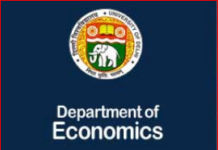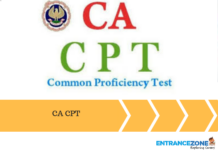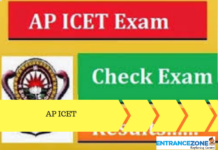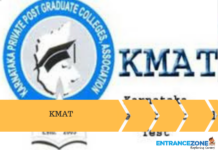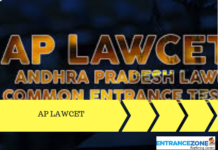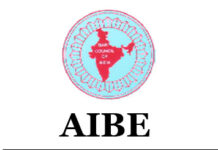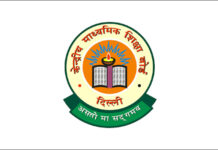Shaheed Sukhdev College of Business Studies Admission 2023 will be announced soon. SSCB is a leading institution of the University of Delhi. It was organized in August 1987 by the Delhi Administration on the initiation of UGC and the Ministry of Human Resources, CBS, in a short period of 25 years, established itself as the premier undergraduate management school. University of Delhi (DU) offering Bachelor of Management Studies (BMS), BBA (Financial Investment Analysis), B. Sc. (H) Computer Science and PG Diploma in Cyber Security and Law. SSCBS is proud to introduce a one-of-a-kind Data Analytics Course certified by the University of Delhi. The 125-hour course has been made under the guidance of professors from some of the leading institutes of the country, including IIMs and IITs, with a focus on machine learning and statistical methods for data analysis. The course also offers a first-hand learning experience of python programming language & python/R programming.
Admission Open 2023
- Top University & Colleges Official Links, Application & Scholarship Forms.
SSCB Admission 2023 Status
| Admission Notification | soon |
| Registration | Soon to start |
| Brochure pdf | yet to release |
Shaheed Sukhdev College of Business Studies Admission 2023 Dates
Contains
The candidates can check below in the table dates for Shaheed Sukhdev College of Business Studies Admission 2023:
| Event | Date |
| Application Start date | August 2023 |
| Last date to apply | September 2023 |
Shaheed Sukhdev College Of Business Studies Admission 2023 Eligibility Criteria
Applicant must have completed his/her 10+2 with Mathematics.
Subscribe to Get Updated Information about Shaheed Sukhdev College Of Business Studies Admission 2023: Registration - Admissions
- Business Analytics
- Data manipulation using Python
- Data Analysis
- Machine Learning
- Optimization in Analytics
Shaheed College of Business Studies Course Structure
Module 1: Introduction to Business Analytics
- Descriptive Analytics: Explaining and summarizing datasets, measures of central tendency, dispersion, skewness, kurtosis, Correlation.
- Probability: Scope of probability, conditional probability, independent event, Bayes’ theorem, random variable, discrete (binomial, Poisson, geometric, hypergeometric, negative binomial) and continuous (uniform, exponential, normal, gamma). Expectation and variance, Markov inequality, Chebyshev’s inequality, central limit theorem.
- Inferential Statistics: Sampling & Confidence Interval, Inference & Significance. Estimation and Hypothesis Testing, Goodness of fit, Test of Independence, Permutations and Randomization Test, t-test/z-test (one sample, independent, paired), ANOVA, chi-square.
Module 2: Data Manipulation Using Python
In addition to Python Editors & IDE’s (Jupyter, Spyder, pycharm, etc.), custom environment settings, basic data types (numeric, string, float) and their operations, control flow (if-elif-else), loops (for, while), inbuilt actions for data conversion, writing user-defined functions.
- Concept of Packages/ Libraries: Necessary packages such as NumPy, SciPy, sci-kit-learn, Pandas, Matplotlib, Seaborn, etc., installing and loading packages, reading and writing data from/to different formats, tuples, sets, dictionaries, simple plotting, functions, list comprehensions, database connectivity.
Module 3: Data Analysis
Importance in industry, Statistical learning vs machine learning, types and phases of analytics.
- Data Pre Processing and Cleaning: Data manipulation track (sorting, filtering, duplicates, merging, appending, subsetting, derived variables, data type conversions, renaming, formatting, etc.), normalizing data, sampling, missing value treatment, outliers.
Exploratory Data Analysis: Data visualization using matplotlib, seaborn libraries, creating graphs (bar/line/pie/boxplot/histogram, etc.), summarizing data, descriptive statistics, univariate analysis (distribution of data), bivariate analysis (crosstabs, distributions and relationships, graphical analysis).
Addition to Applications of Machine Learning, Key elements of Machine Learning, Supervised vs. Unsupervised Learning.
- Supervised Machine Learning: Linear Regression, Multiple Linear Regression Polynomial Regression.
- Classification: Using Logistic Regression, Logistic Regression vs. Linear Regression, Logistic Regression with one variable and with multiple variables, Application to multi-class classification. The problem of Overfitting, Application of Regularization in Linear and Logistic Regression. Regularization and Bias/Variance. Classification using K-NN, Naive Bayes classifier, Decision Trees (CHAID Analytics), Random Forest, Support Vector Machines.
- Model Evaluation: Cross-validation types (train & test, bootstrapping, k-fold validation), parameter tuning, confusion matrices, basic evaluation metrics, precision-recall, ROC curves.
Module 5: Machine Learning Part- 2
- Neural Networks: Introduction, Model Representation, Gradient Descent vs. Perceptron Training, Stochastic Gradient Descent, Multiclass Representation, Multilayer Perceptrons, Backpropagation Algorithm for Learning, Introduction to Deep Learning.
- Association Rule Mining: Mining frequent itemsets, Apriori algorithm, market basket analysis.
- Unsupervised Machine Learning: Introduction, Clustering, K-Means algorithm, Affinity Propagation, Agglomerative Hierarchical, DBSCAN, Dimensionality Reduction using Principal Component Analysis.
- Time Series Forecasting: Trends and seasonality in time series data, identifying trends, seasonal patterns, first-order differencing, periodicity and autocorrelation, rolling window estimations, stationarity vs. non-stationarity, ARIMA and ARIMAX Modeling.
Module 6: Optimization in Analytics
Addition to Operations Research (OR), Linear Programming Problems (LPP), Geometry of linear programming, Sensitivity and Post-optimal analysis, Duality and its economic interpretation.
Network models and project planning, Non-linear Programming – KKT conditions, Introduction to Stochastic models, Markov models, Classification of states, Steady-state probability, Dynamic Programming.
SSCBS Data Analytics Admission Course fee
| Registration Fee | Rs. 200 |
| Tuition Fee | Rs. 40,000 |
Shaheed Sukhdev College of Business Studies Admission 2023 Highlights
The candidates can check below in the table short details about Shaheed Sukhdev College of Business Studies Admission 2023:
| Admission Name | Shaheed Sukhdev College of Business Studies Admission 2023 |
|---|---|
| University Name | Shaheed Sukhdev College of Business Studies (Delhi University) |
| Level | National Level |
| Official website | https://sscbsdu.ac.in/ |

